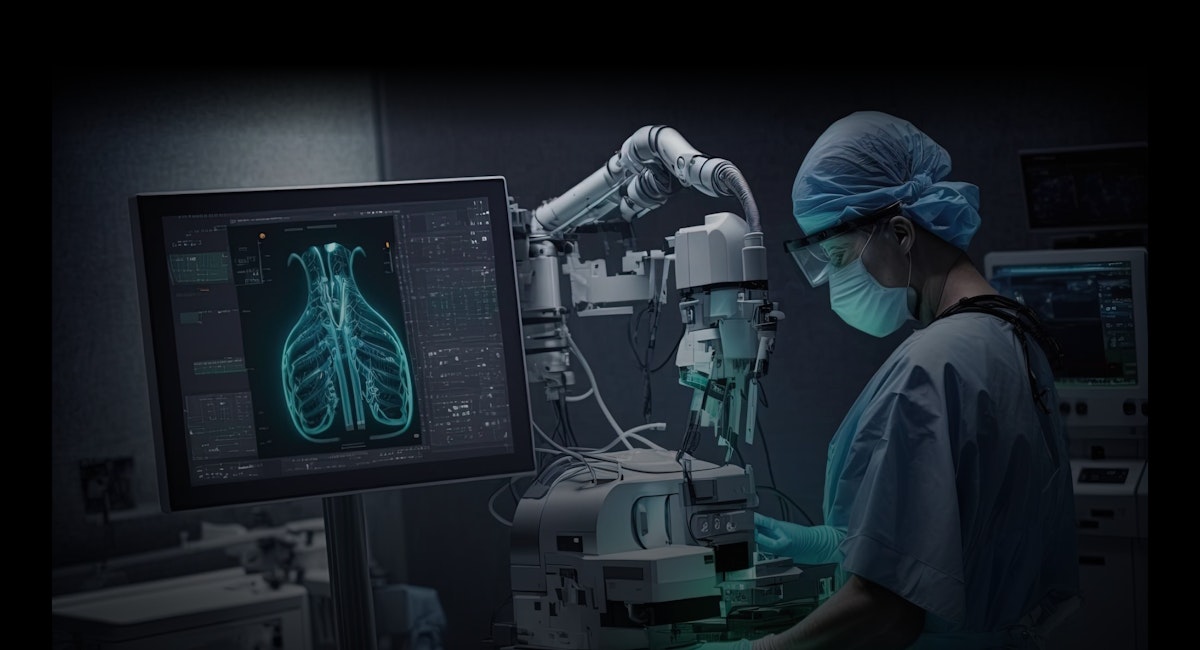Table of Content
If you’re a lawyer, you’d agree that predicting case outcomes largely relies on experience and intuition. However, human judgment is prone to biases and can be influenced by emotional states.
In some scenarios, you may even have to work on a complex case with limited access to comprehensive data and stringent time constraints. This could introduce uncertainty into your decision-making processes, undermining the fairness and accuracy of legal proceedings.
The excellent news is predictive analytics has shown the potential to contribute to a more efficient and effective legal practice.
What is AI predictive analytics in legal?
It’s a powerful tool that leverages Artificial Intelligence (AI) and Machine Learning algorithms to analyze vast amounts of data and generate accurate predictions in the legal industry.
Predictive analytics enables lawyers to:
- Forecast the workload of legal teams for effective resource allocation
- Predict the likelihood of winning or losing a case based on historical data
- Undertake contract analysis to calculate potential risks and areas of non-compliance
- Highlight relevant case law and precedents that may impact the outcome of a case and, ultimately, client satisfaction
If you’d like to learn more about this technology’s benefits and practical applications in the legal industry, you’re in for a treat.
The following sections explore specific case studies illustrating the impact of predictive analytics in law and provide insights into the future trends and developments in this field.
Let’s get started.
Key takeaways
By incorporating AI, you can do an early case assessment to determine its strengths and weaknesses, formulate a strategic plan, and decide whether to pursue settlement, negotiation, or litigation.
AI predictive analytics provides a scientific approach to accurately forecasting case outcomes, helping you make informed decisions and meet client expectations.
Analyzing historical data related to similar cases enhances the accuracy of predicting legal costs and budgets, helping you better convince your clients with AI-driven solutions.
Safeguard your law firm from legal and reputational damages using AI tools to identify patterns, anomalies, and correlations in your legal documentation and communication records.
Use cases of AI predictive analytics for lawyers
The most prominent use cases of AI predictive analytics for lawyers consist of AI-powered litigation strategies, predicting case outcomes, estimating legal budgets for clients, and managing legal risk to ensure legal compliance. Explore all in-depth with examples.
1. Assess early cases and strategize litigation
Early case assessment plays a crucial role in determining a case’s strengths and weaknesses, formulating strategic legal processes, and deciding whether to pursue settlement, negotiation, or complex litigation.
But to do that, you have to analyze vast amounts of legal data, including past cases, statutes, judge rulings, and similar lawsuits, which, to be honest, is easier said than done with limited time and human resources at hand.
AI predictive analytics can process and cross-reference text-based legal documents much faster than humans, gaining statistically significant insights and potentially predicting future outcomes within minutes.
For instance, if a particular type of argument has consistently been successful in similar cases or if specific facts tend to sway decisions in a particular direction, AI tools can highlight these factors to help you build the case and deliver winning client services.
Since predicting the opposing counsel’s arguments is also possible, you can prepare counter-arguments more effectively, increasing your likelihood of success. AI-driven legal research considerably cuts down manual labor required for repetitive tasks.
2. Predict case outcomes with a higher degree of accuracy
As a lawyer, before taking on a case, you need to conduct thorough due diligence to assess its potential. AI predictive analytics provides a scientific approach to forecasting case outcomes accurately, helping you manage your current workflow properly.
Because AI-powered tools can simulate different legal scenarios, such as counsel arguments, evidence presentations, case facts, witness testimonies, and jury deliberations, you can get a better idea of how the case can unfold in different situations and make strategies accordingly.
Suppose your client is suing a hospital for negligence after a surgical error led to severe complications. You can use AI predictive analytics to study data from similar past cases, including:
- Defendant’s legal strategy
- Past Jury decisions in the venue
- Judges’ ruling history in similar cases
- Outcomes based on the type of medical/human error
- Specific characteristics of the case, such as the evidence provided
From this analysis, the AI tools could predict a 70% chance of a favorable ruling should the case go to trial. It also estimates the trial would likely last between six and nine months and projects legal costs based on this duration and the case complexity.
When you’re armed with such valuable insights, you can offer superior legal services. You can discuss all details transparently and confidently with your client, helping them with cost savings and taking a call to either settle with the hospital out of court or proceed to trial.
3. Estimate legal costs and budgets for clients
AI tools can enhance the accuracy of predicting legal costs and budgets by analyzing historical data related to similar cases, including attorney hours, court fees, administrative costs, and other expenses associated with comparable legal proceedings.
Enhancing your legal research capabilities, AI tools may recognize that certain cases, for instance, tend to incur higher attorney fees or that cases in specific jurisdictions have lower court fees.
This predictive capability is especially beneficial when dealing with complex legal issues that vary widely in duration and resource requirements. Improved cost predictions bring several benefits to the law industry, such as:
- Setting appropriate fees and managing client expectations appropriately to reduce the risk of cost overruns that can erode profitability
- Allocating resources to the legal staff without over-stretching
Imagine a startup considering legal action against a competitor for intellectual property infringement. As its legal team, you can use AI tools to predict the costs of this litigation by analyzing data from similar cases handled previously.
The AI model considers factors like the case’s complexity, the typical duration of such cases, lawyer fees, and other business transaction expenses.
The AI predicts that the total cost of pursuing the case through to a trial could range between $200,000 to $250,000. You present these predictions to the startup’s management, along with a detailed breakdown of potential phases of the litigation and associated costs for each phase.
This AI-powered legal assistance allows the startup to assess whether pursuing the case aligns with its financial capabilities and end goals.
4. Manage potential risks and ensure compliance for law firms
In addition to using AI predictive analytics for handling client cases, you can adopt this technology to protect your law firm from legal and reputational damages, ensuring a more secure and efficient operation.
Using Natural Language Processing (NLP) and ML algorithms, AI tools can identify patterns, anomalies, and correlations in your firm’s legal documentation and communication records.
For example:
- In emails, AI can detect suspicious activities or patterns, such as excessive communication with external parties, which may indicate potential data breaches, insider trading, or attempts to circumvent compliance protocols.
- During contract drafting, AI can identify ambiguous language or clauses that might expose your law firm to legal risks, such as non-compliance with industry regulations or unfair terms that could lead to disputes or litigation.
- In communication logs, AI can flag unusual communication patterns, such as a sudden increase in internal messaging about a sensitive topic or keywords that suggest potential conflicts of interest, collusion, or other ethical violations.
Through these key insights, you can mitigate compliance risks, unethical behavior, and malpractice suits.
For example, if you find unusually high levels of communication between an employee of your law firm and your competitor, you could flag it as a risk for intellectual property theft or conflict of interest.
In another instance, frequent delays in case filings or consistent issues in client communication or contract reviews could indicate a higher malpractice risk.
AI predictive analytics helps you ensure your law firm functions like a well-oiled machine, free from regulatory breaches, potential fraud, and resource misallocation. This allows your firm to handle more cases efficiently and maintain a favorable brand image in the market.
Benefits of AI-powered predictive analysis for lawyers
1. Cost savings
AI predictive analytics reduces costs in the legal sector. Automating document review, legal research, and other repetitive tasks minimizes the need for extensive manual labor, thereby cutting down operational expenses for legal firms. Additionally, predictive analysis helps in identifying and mitigating potential risks early, avoiding costly litigation and settlements.
2. Greater client satisfaction
AI-powered predictive analysis enhances client satisfaction by providing more accurate and timely legal advice. With AI, you can predict case outcomes, legal trends, and potential risks with higher precision. This equips you to set realistic expectations for your clients and provide strategic guidance that is based on data-driven insights.
3. Better professional development
AI-powered predictive analysis supports your professional development by providing advanced tools and insights that enhance your decision-making skills.
You can leverage AI to stay updated on the latest legal trends, precedents, and regulatory changes. This continuous learning process helps refine your expertise and adapt to the evolving legal landscape.
4. Improved case evaluation and strategy
AI predictive analytics tools aid in risk assessment and identifying relevant evidence, enabling you to craft more effective strategies by analyzing vast amounts of data from past cases, legal texts, and judicial opinions.
The improved diligence processes ensure that potential issues are addressed proactively, resulting in better case outcomes and a more thorough legal compliance framework.
AI’s ability to process and analyze data at a scale and speed beyond human capability provides a substantial advantage in this context.
The future implication of AI predictive analytics in the legal industry
The advent of AI predictive analysis marks a turning point in the legal landscape. Legal work traditionally drowns you in case research, court filings, and administrative tasks, dramatically reducing your physical and mental energy levels.
Why waste time (20 hours or more per week) in non-client-facing billable work when AI tools can automate draft texts, summarize legal documents, create compelling arguments, and predict legal outcomes by helping you explore different angles to build strategies and win cases?
If you’re keen to adopt Generative AI for your law firm and deliver superior legal services, our Generative AI app development services won’t disappoint you.
Book a consultation with Intuz’s AI experts. You’ll also receive a free, actionable roadmap to get started with this technology.






